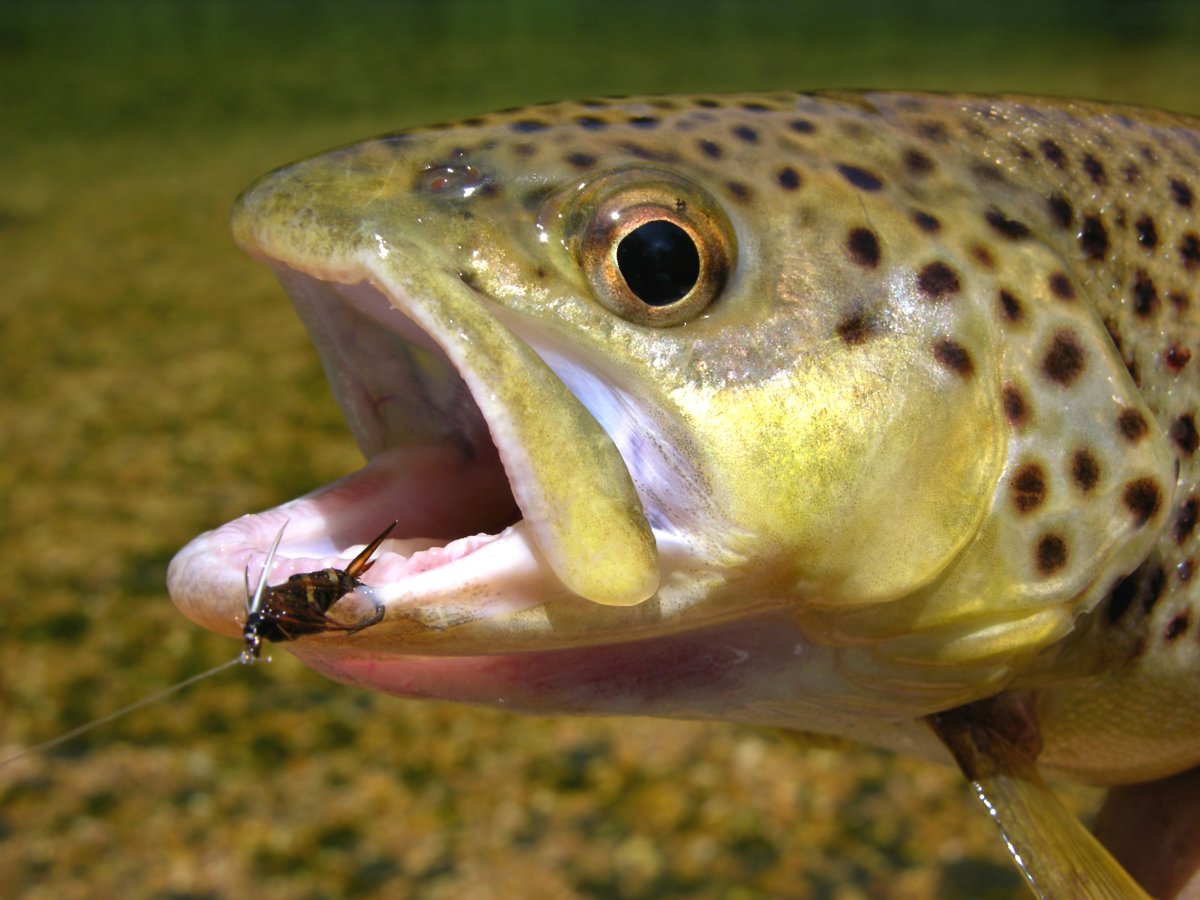Animals might not respect the manmade lines we draw along our borders, but that does not mean they don't have their own complex communities.
By studying the White River Basin in Arkansas, biologists from the University of Arkansas have mapped out what they describe as fish "countries," which they hope will aid future plans for conservation and ecosystem management.
"Just as our ancestors were more likely to have close relatives nearby, so also have fish, thus creating regionally distinct genetic 'countries,' shaped by unique environments," Zach Zbinden, a post-doctoral research associate who carried out the research as part of his doctoral dissertation, said in a statement.
The White River originates in northwest Arkansas in the Boston Mountains and eventually links up with the Mississippi River. The river basin can be separated into several sub-basins consisting of different sub-regions.
To analyze these "fish countries," Zbinden and his team surveyed 31 species of fish from 75 locations along the river basin, examining the degree of genetic divergence within the different species. By studying this genetic variation, the team revealed consistent genetic boundaries between fish populations at these different locations.

These genetic boundaries can be caused by limited dispersal between sub-populations or different environmental pressures, resulting in different adaptations.
The assessment of several of the species allowed the team to confirm that this genetic differentiation was consistent among different species in different locations, demonstrating the existence of these invisible borders and sub-populations within the river ecosystem.
The team hopes that shedding light on these distinct sub-populations will help inform future conservation strategies for fish populations in the White River Basin and beyond.
Arkansas' native fishes face many threats. These include overfishing, habitat degradation, development, pollution, climate change and the introduction of non-native fish species, according to the Native Fish Coalition.
Analysis of genetic variation in single species is a common practice in conservation to analyze population sizes and justify funding. This multi-species approach allows for a more holistic understanding of the complexity of river network structures.
The data also highlights the importance of independent management of these populations. For example, bolstering the stocks of fish in one "country" with those from a different one might do more harm than good, potentially causing one sub-species to displace the other.
Do you have an animal or nature story to share with Newsweek? Do you have a question about conservation? Let us know via nature@newsweek.com.
Uncommon Knowledge
Newsweek is committed to challenging conventional wisdom and finding connections in the search for common ground.
Newsweek is committed to challenging conventional wisdom and finding connections in the search for common ground.
"fish" - Google News
January 08, 2024 at 07:23PM
https://ift.tt/hRVT6o0
Scientists Reveal Secret World of Fish 'Countries' That Divide Arkansas - Newsweek
"fish" - Google News
https://ift.tt/GQyDrAv
https://ift.tt/7koX1lY
Bagikan Berita Ini














0 Response to "Scientists Reveal Secret World of Fish 'Countries' That Divide Arkansas - Newsweek"
Post a Comment